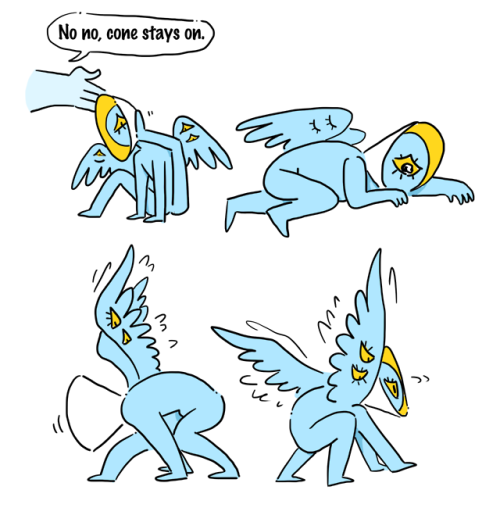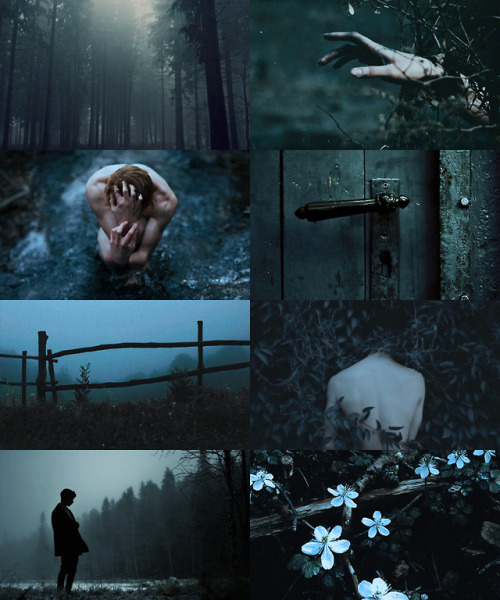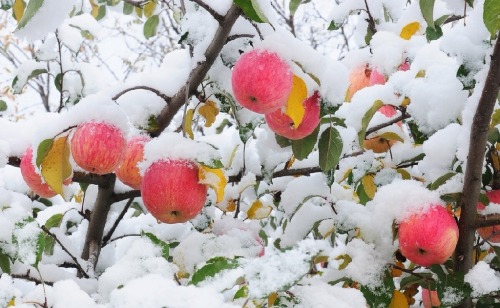Writing Worksheets & Templates
Writing Worksheets & Templates
will update this every few weeks/months. alternatively, here are all my tagged Writing Worksheets & Templates
Chapter Outline ⚜ Character- or Plot-Driven Story
Death & Sacrifice ⚜ Magic & Rituals ⚜ Plot-Planning
Editing: Sentence Check ⚜ Writing Your Novel: 20 Questions
Tension ⚜ Thought Distortions ⚜ What's at Stake
Character Development
50 Questions ⚜ Backstory ⚜ Character Creation
Antagonist; Villain; Fighting ⚜ Protagonist & Antagonist
Character: Change; Adding Action; Conflict
Character: Creator; Name; Quirks; Flaws; Motivation
Character Profile (by Rick Riordan) ⚜ Character Sheet Template
Character Sketch & Bible ⚜ Interview your Character
Story-Worthy Hero ⚜ "Well-Rounded" Character Worksheet
Worldbuilding
20 Questions ⚜ Decisions & Categories ⚜ Worksheet
Setting ⚜ Dystopian World ⚜ Magic System (AALC Method)
Templates: Geography; World History; City; Fictional Plant
References: Worldbuilding ⚜ Plot ⚜ Character ⚜ Writing Resources PDFs
all posts are queued. send questions/requests here.
More Posts from Reaperswriting and Others


My cat has to wear a cone this week and it made me think of an angel whose halo is a cone.
writing tip: searching "[place of origin]ish names" will get you a lot of stuff and nonsense made up by baby bloggers.
searching "[place] census [year]" will get you lists of real names of real people who lived in that place.
hey writers! OneLook Thesaurus lets you find that word you can’t think of but can describe! go check it out!



Geology of Natural Disasters and How to write them into your fictional universe.
So, you want to write about a natural disaster to advance your plot and torture your players/characters even more? Let me tell you how, accurately.
I feel like unless it is a volcano, natural disasters are a pretty slept on plot drivers, and some of them are really cool and unique! Today, I will talk to you about land slides, earthquakes (And earthquake related disasters), and volcanoes.
Landslides: Probably one I see the least in stories, but one that would be incredibly interesting to write into a plot where they believe in curses. Landslides can happen along ocean bluffs, slightly hilly areas, and highly mountainous areas, this means it is something that can happen in most landscapes. But what can trigger a landslide? Mostly all you need to trigger a landslide could be just abnormally large amounts of rain, excessive deforestation (with a little bit of rain), or an earthquake. If you don't want to use deforestation or an earthquake as a catalyst, a really cool indicator that the land is slipping and may be prone to a collapse is J hooked trees.

This indicates that there is soil creeping slowly over time, and it may lead to a major landslide.
2. Earthquakes: Probably one of the easiest things to write, earthquakes can happen anywhere, but they are most common in places that are tectonically active areas. There are about three types of environments you can expect earthquakes to be common. The first is just rugged mountains, if your landscape looks like this, you should write in earthquakes. Associated hazards could be landslides, avalanches, and large falling rocks.

The next landscape could be a thin mountain range, next to the ocean, very scenic, but very dangerous. Essentially, I am describing a subduction zone environment.

Earthquakes in these areas could equal a couple different associated disasters. Scenario one: A very large earthquake happens, and the ocean begins to recede. This is a tsunami, enough said. If you are writing a tsunami though, please, please, do not write it as a large wave, thank you. Also, a common way people are hurt by tsunami's are from them going into the ocean because they don't understand a tsunami is going to happen.

Scenario two: A large earthquake happens, your characters are in a valley and suddenly the ground begins to liquify as the ground shakes, once the shaking stops, the ground becomes solid like nothing ever happened, except everything has suddenly sunk into the now hard ground. This is called liquefaction and it typically happens in areas that have loose dirt or lots of saturated soil.

Scenario three: There are a lot of small earthquakes, they do not cause a lot of damage, but you begin to notice that one of the isolated mountains has a plume rising. Earthquakes can indicate lava moving underground and the filling of magma chambers.

The next environment that can host lots of earthquakes would be regions that have a lot of really deep valleys and small mountain ranges (not cone volcanoes), but overall seems pretty flat.

This indicates a transform fault like the San Andreas. If you want to hint at there being earthquakes in the area, you can show fence posts that are suddenly several feet out of line at a dilapidated farm or something similar.

(These earthquakes are different because they are cased from sideways movement, not an up-and-down movement this hint can only be used for this environment). Volcanoes would not be found here, but liquefaction and landslides could still occur here.
4. Volcanoes: If you thought earthquakes had a lot of information, volcanoes do too. First you have to ask yourself, what kind of volcano you want to have, what kind of eruption style? So lets break down the kind of eruptions you can have and what their landscapes look like. Hawaiian Shield volcano: This will produce a smooth fast lava, the landscape typically is pretty flat, but there will be small cones and the rocks can have a ropey or jagged texture and the rocks will be almost exclusively black to dark red.

Stratovolcanoes: These will be solitary mountains, typically, that look like perfect cones (Picture shown in earthquake section). These will have large ash cloud eruptions and pyroclastic flows, they may have some lava, but typically most damage is done from the pyroclastic flows (think Pompeii). Some hints of these, other than describing the cone features (which can be hidden by other mountains), would be to talk about petrified wood! Trees can get fossilized in the ash and I imagine it would be very strange to find this rock that clearly looks to be a piece of wood, but its a rock. Subcategory- Calderas: Used to be a large stratovolcano, but they erupt so explosively that the entire cone collapses and creates a basin.

There are a lot of kinds of volcanoes out there, so forgive me for just putting an infographic and then talking to you about these really rare types of eruptions that I feel like people should know about.

Okay lets talk about blue lava (kind of) and black lava

You will notice the lava is still red in the middle of this image, during the day these would look like a normal eruption, but at night the burning sulfur would make it appear blue. Some cool features other than this, would be that any water in the area would become very acidic and burn the skin due to sulfuric acid. This would again be really cool if you are trying to describe a 'cursed' land.
Black lava: This happens only in the east African rift I believe, but it is a carbonatite lava, but if you are writing in a rift valley (where the continent is tearing apart to form a new ocean) this might be a cool feature. The lava will cool white and will quickly erode, it makes for a very alien landscape!

Anyway as always, this is supposed to be an introductive guide for the basics of writing geology to create cool landscapes/features into dnd or fictional universes, if you are a geologist please understand my oversimplification of tectonics, I didn't want people to run away.

Changeling Boyfriend
Given that the town you live in is tiny and isolated, the amount of men you could court is awfully small. As the other girls begin growing into womanhood, the boys started to be snatched up faster than you can blink. Given that you had very little interest in marriage, much to your father’s chagrin, you ended up getting the leftovers of the pot when you were finally convinced to settle down.
It is not as though you don’t like any of the boys, you just don’t see how you can raise a family with them. Deciding who to spend the rest of your life with, for better or for worse, is no small task. Your mother calls you overly picky, but how can anyone blame you?
After quickly shifting through the others, you manage to start courting one of the Miller boys. Duncan has a mop of red curls, his skin peppered with countless freckles. He is a few inches taller than you, strong from carrying bags of grain to and fro, and has the most charming laugh. There is the slightest limp in his walk from an accident at the mill, barely noticeable to anyone who does not know him. Maybe not the most handsome of the town, but certainly reliable.
Keep reading
reposting this on here because I enjoy this account and because this is a really useful visual depiction of how to mend using thread.
Expanding a thought from a conversation this morning:
In general, I think "Is X out-of-character?" is not a terribly useful question for a writer. It shuts down possibility, and interesting directions you could take a character.
A better question, I believe, is "What would it take for Character to do X?" What extremity would she find herself in, where X starts to look like a good idea? What loyalties or fears leave him with X as his only option? THAT'S where a potentially interesting story lies.
In practice, I find that you can often justify much more from a character than you initially dreamed you could: some of my best stories come from "What might drive Character to do [thing he would never do]?" As long as you make it clear to the reader what the hell pushed your character to this point, you've got the seed of a compelling story on your hands.









apples trees in winter snow
Amazing day to night time-lapse of a Ghost fungus.
It has bioluminescent properties and is known to be found primarily in southern Australia and Tasmania
-
 xeinnnn liked this · 2 weeks ago
xeinnnn liked this · 2 weeks ago -
 fairystoryfemme liked this · 2 weeks ago
fairystoryfemme liked this · 2 weeks ago -
 bobothegargoyled liked this · 2 weeks ago
bobothegargoyled liked this · 2 weeks ago -
 jecblogs liked this · 2 weeks ago
jecblogs liked this · 2 weeks ago -
 alfys-pigeon-house reblogged this · 2 weeks ago
alfys-pigeon-house reblogged this · 2 weeks ago -
 alfys-pigeon-house liked this · 2 weeks ago
alfys-pigeon-house liked this · 2 weeks ago -
 dastardlyplumproe liked this · 2 weeks ago
dastardlyplumproe liked this · 2 weeks ago -
 i-run-with-scissors39 reblogged this · 2 weeks ago
i-run-with-scissors39 reblogged this · 2 weeks ago -
 penelopetheconartist liked this · 2 weeks ago
penelopetheconartist liked this · 2 weeks ago -
 lolasoupie liked this · 2 weeks ago
lolasoupie liked this · 2 weeks ago -
 armadilloarmy600 reblogged this · 2 weeks ago
armadilloarmy600 reblogged this · 2 weeks ago -
 k-tblog liked this · 2 weeks ago
k-tblog liked this · 2 weeks ago -
 wonderxoxo12 liked this · 2 weeks ago
wonderxoxo12 liked this · 2 weeks ago -
 ravennya0 liked this · 2 weeks ago
ravennya0 liked this · 2 weeks ago -
 mildlyprimaljustice liked this · 2 weeks ago
mildlyprimaljustice liked this · 2 weeks ago -
 rat-burrow liked this · 2 weeks ago
rat-burrow liked this · 2 weeks ago -
 absolutely-not-2022 reblogged this · 2 weeks ago
absolutely-not-2022 reblogged this · 2 weeks ago -
 absolutely-not-2022 liked this · 2 weeks ago
absolutely-not-2022 liked this · 2 weeks ago -
 storyandwritingideas reblogged this · 2 weeks ago
storyandwritingideas reblogged this · 2 weeks ago -
 ljgldluytdlutdltuu liked this · 2 weeks ago
ljgldluytdlutdltuu liked this · 2 weeks ago -
 bl-lovejoy reblogged this · 2 weeks ago
bl-lovejoy reblogged this · 2 weeks ago -
 batty4her liked this · 2 weeks ago
batty4her liked this · 2 weeks ago -
 iwasfeelingepic06 liked this · 2 weeks ago
iwasfeelingepic06 liked this · 2 weeks ago -
 mx-pinkthing liked this · 2 weeks ago
mx-pinkthing liked this · 2 weeks ago -
 baguetteems liked this · 2 weeks ago
baguetteems liked this · 2 weeks ago -
 sydneysandshoes liked this · 2 weeks ago
sydneysandshoes liked this · 2 weeks ago -
 touchmyfracturedomens reblogged this · 2 weeks ago
touchmyfracturedomens reblogged this · 2 weeks ago -
 touchmyfracturedomens liked this · 2 weeks ago
touchmyfracturedomens liked this · 2 weeks ago -
 sowearecleariamhere liked this · 2 weeks ago
sowearecleariamhere liked this · 2 weeks ago -
 ariakso reblogged this · 2 weeks ago
ariakso reblogged this · 2 weeks ago -
 half-a-miracle liked this · 2 weeks ago
half-a-miracle liked this · 2 weeks ago -
 dixbolik-bby reblogged this · 2 weeks ago
dixbolik-bby reblogged this · 2 weeks ago -
 dixbolik-bby liked this · 2 weeks ago
dixbolik-bby liked this · 2 weeks ago -
 mywalkedthrough29 liked this · 2 weeks ago
mywalkedthrough29 liked this · 2 weeks ago -
 maybegoing liked this · 2 weeks ago
maybegoing liked this · 2 weeks ago -
 quinticprisms liked this · 2 weeks ago
quinticprisms liked this · 2 weeks ago -
 fluorspar-doodles liked this · 2 weeks ago
fluorspar-doodles liked this · 2 weeks ago -
 saltyundertowprecipice liked this · 2 weeks ago
saltyundertowprecipice liked this · 2 weeks ago -
 museofpearls liked this · 2 weeks ago
museofpearls liked this · 2 weeks ago -
 transglennder reblogged this · 2 weeks ago
transglennder reblogged this · 2 weeks ago -
 onverbalbay reblogged this · 2 weeks ago
onverbalbay reblogged this · 2 weeks ago -
 transglennder liked this · 2 weeks ago
transglennder liked this · 2 weeks ago -
 pancaketokepi liked this · 2 weeks ago
pancaketokepi liked this · 2 weeks ago -
 thecallofthevoid08 liked this · 2 weeks ago
thecallofthevoid08 liked this · 2 weeks ago -
 perry-88 liked this · 3 weeks ago
perry-88 liked this · 3 weeks ago -
 lonee-wolff liked this · 3 weeks ago
lonee-wolff liked this · 3 weeks ago -
 angelxmachinery liked this · 3 weeks ago
angelxmachinery liked this · 3 weeks ago -
 valentinevamp liked this · 3 weeks ago
valentinevamp liked this · 3 weeks ago -
 dark-nightsky liked this · 3 weeks ago
dark-nightsky liked this · 3 weeks ago

23, Australian, this is where I'm dropping my writing inspo and pieces.
90 posts

